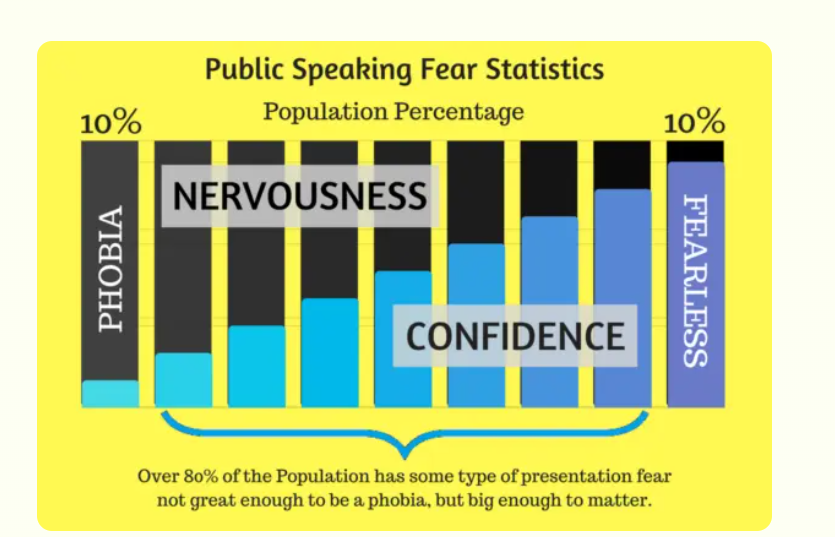Managing fear for high performance and life long career growth

Objective
The purpose of this article is to empower the reader with reasonable knowledge and awareness on what abnormal fear in a person can do and what steps can be taken to transform his life for the better. The article is also aimed to give comfort that fear in a person is normal and needed to bring the balance in one’s life. Without fear, a human being could be even dangerous to oneself and others around him. Hopefully, we can all revitalise our positive self-beliefs in order to drive action orientated thinking as a starting point for a permanent new high achiever self. Key to the knowledge and the awareness on this article, is that fear can be manageable with the appropriate help.
Interesting questions to ignite the mind and set the scene.
How it manifests in the workplace for some people regardless of the rank, position, level or age?
- E.g., Think about a situation/s where you experienced anxiety or fear which led you not to take the opportunity presented to you in your career or life in general.
- What was your mental state back then?
- After reading this article, see if you could make the same situation more manageable if you had this knowledge.
Is there anything that can be done to reduce the intensity of fear to the levels that can be called normal or manageable?
Why do I write about fear in the workplace?
Why does the manageability of fear in the workplace matter?
How I got to this point?
Due to the nature of my work, I was always looking for solutions to be able to help all professionals (junior and senior) in my work at EY to deal with daily challenges facing them within the teams or at the client.
- Benefits of fear
- Leads one to be cautious and rethink situations and consider one’s professional background (business ethics, morals, etc).
- Disadvantages of fear
- Long list, however, poor choices could be taken in many areas of personal and professional development journey. The consequences could be anything like, lack of career growth, mental health issues, even unethical conduct when pushed by people with ulterior motives in life to benefit their agendas, etc.
- Therefore, appropriate balance and management of fear is required to all of us.
- Long list, however, poor choices could be taken in many areas of personal and professional development journey. The consequences could be anything like, lack of career growth, mental health issues, even unethical conduct when pushed by people with ulterior motives in life to benefit their agendas, etc.
What does one need to be successful in his/her career in life, both personal and professional?
- Look for the area that is a concern in your life related to fear
- Identify and analyse it properly
- Your self-analysis on the area that you want adjustment on – need to be fair and thorough.
- Be completely honest to yourself when doing this self-review on the area that you have identified.
- Don’t allow yourself to go shallow, go deep so that you achieve lasting behaviour change for life.
- Take time to observe yourself without being too critical (avoid being taken away by self-limiting beliefs)
- Consult with people who know you best – if it’s a professional area, speak to trusted colleagues to get constructive feedback.
- When convinced that it is the correct area for you to focus on for your career development, adopt a strategy to follow.

- The next steps
- For example, public speaking – most people struggle with this activity at some point in life. Researchers call it glossophobia. See the results below from the article by Ruben Kesherim, www.supportivecareaba.com. The article is titled, 49 Fear of Public Speaking Statistics (Prevalence).
- Key take-aways from this article above are:
- Affects 75% of the people in the world
- Can negatively impact career opportunities and advancement
- 40% of people with glossophobia, experience sleep disturbance the night before.
- 73% of business professionals are affected by glossophobia in different ranges and levels of severity, from mild to very high.
- Public speaking anxiety can affect both experienced professionals and junior staff members.
- Good news from the above article is the following
- 90% of successful public speakers have experienced public speaking anxiety
- Glossophobia can be successfully managed with the correct techniques and therapy.
- Cognitive – Behavioural therapy (CBT) has shown positive results
- The benefit of a well-managed public speaking fear is that it will open new opportunities and boost your self confidence in most areas of your life (personal, professionally, socially, etc.)
- As you take this personal journey of self-discovery, note the following after the above article:
- Be aware that the journey maybe uncomfortable – moderate to very high and intense for some people.
- Be prepared that it will take time practicing before fear is reduced and you gain your comfort when speaking – see the graph illustration above – from phobia to fearlessness.
- Exposure technique (use any opportunity available to speak as a tool)
- Design a plan
- Look for opportunities in the team where you could start this little by little (using baby steps).
- It could be small and informal or big and formal depending on what the objectives are and time lines, e.g. career goals or performance review related matters, church duties, etc.
- Personal experience
- I have experienced all of the above as mentioned in the article, from my young age to my senior days in the corporate world. I must also say that it does not completely disappear. As per the graph above, I am happy with 10% fear as it helps me to work hard in my preparation for any event that I am asked to speak on. I end up doing more and more research and consultations to reduce the levels and the severity of the anxiety attack. I find that this improves the quality of my presentation and boosts my confidence to the highest level.
- Recommendation
- Don’t ignore any form of fear that may exist in you.
- Be bold and take action to correct it on time.
- Talk to a colleague/s
- Find a mentor
- Talk to your counsellor, supervisor or manager, etc.
- Seek guidance from your Human Resources professionals within your company (e.g., EAP systems)
- Find a Professional Life Coach and complete personal assessments to confirm what may be needing attention for you to transform yourself to endless growth opportunities in your life.
- Consult any other relevant professional so that your career growth and development does not suffer because of something that could easily be resolved – according to the research from www.supportivecareaba. – 90% of excellent speakers have successfully overcome this challenge.
Resources
- The Human Mind – Owner’s Manual, Joeel. A Rivera & Natalie Rivera
- Transformation Academy
- 49 Fear of Public Speaking Statistics (Prevalence), Ruben Kesherim